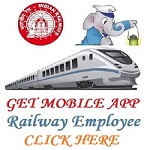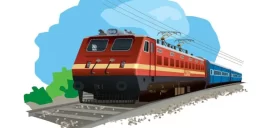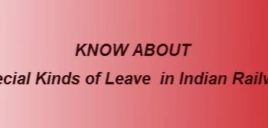In general, Passenger trains (also ‘ordinary passenger trains’, or ‘stopping passenger trains’) are the ones that stop at all, or nearly all, of the stations along a route. Most of these tend to be quite slow. Express trains skip many stations and stop at only selected ones. An express train need not be a particularly fast train, although there is often an expectation that it will run fairly fast, at least faster than the ordinary passengers on the same route. (See the term ‘superfast’ below.) Fast Passengers are an in-between class — while no real criterion appears to exist for labelling a train a fast passenger, but in general they stop at a lot of stations along the way (many more than for an express, but fewer than for an ordinary passenger) and have a higher average speed than the ordinary passenger services on the same section. They also generally have reservable sleeper coaches, something not seen in ordinary passenger trains. E.g., the Nagpur Tatanagar Fast Passenger has three sleeper coaches [12/04].
Passenger trains are also known as ‘ordinary trains’ in some places. Express trains and mail trains (see below) are together often referred to as ‘mail/express’ or ‘M/E’ trains.
In timetables, some trains are marked as ‘Express/Passenger’ which implies that they are like passenger trains along some sections of their route, halting at all or almost all stations, and skipping halts on other sections. The express fare surcharge in such cases is applicable only to the express portion of the journey. Generally these trains have one passenger section and the rest of the route is express (or vice versa), and trains with several passenger sections separated by express sections appear to be very rare.
‘Special’ trains are ordinary trains in terms of their accommodations and speed. They are so termed because they do not appear in the normal timetables and are run during vacation / festival times and at other times when there are seasonal surges of traffic along certain routes. Also known as ‘Holiday Specials’.
Occasionally, trains have been marked ‘Premium’ or ‘Premium Special’, especially holiday specials and other special trains. The term appears to apply only to trains that run at an average speed of 60km/h or above.
Source – IFRCA.org
Disclaimer: The Information /News /Video provided in this Platform has been collected from different sources. We Believe that “Knowledge Is Power” and our aim is to create general awareness among people and make them powerful through easily accessible Information. NOTE: We do not take any responsibility of authenticity of Information/News/Videos.
This entry was posted in 2 Railway Employee, STUDY NEW, Railway Employee











